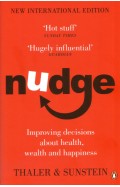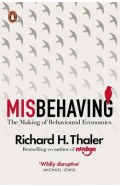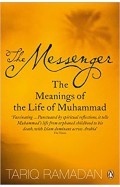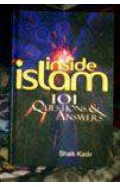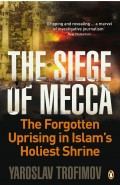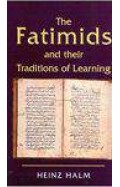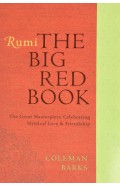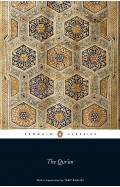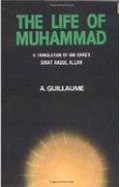ESOTERISM: AS PRINCIPLE AND AS WAY
By: Frithjof Schuon
-
Rs 672.00
- Rs 840.00
- 20%
You save Rs 168.00.
Due to constant currency fluctuation, prices are subject to change with or without notice.
This is a work in which the author explains why esoterism is both possible and necessary and how it applies to the various levels of human experience. It is a question of authentic esoterism, and not of its counterfeits and deviations. The author shows how esoterism is the intellectual principle capable of explaining the formal contradictions of the religious systems that have been highlighted—and presented as a sign of weakness— in the “scientific” age; and also how it constitutes the spiritual way whereby we may reach the truth or reality, despite the confusions and obstacles with ‘which technological civilization and its accompanying philosophy seek to obscure our vision and weaken our resolve. As the author says: “Just as rationalism can remove faith so esoterism can restore it.” New readers of Frithjof Schuon will not fail to be impressed by the vigour and precision of his writing and by his authoritative handling of complex problems, and they will delight in discovering how the economy and “symmetry” of his style are accompanied by a unique poetic quality. The volume now presented is undoubtedly one of the most all-embracing of his works.
This is a work in which the author explains why esoterism is both possible and necessary and how it applies to the various levels of human experience. It is a question of authentic esoterism, and not of its counterfeits and deviations. The author shows how esoterism is the intellectual principle capable of explaining the formal contradictions of the religious systems that have been highlighted—and presented as a sign of weakness— in the “scientific” age; and also how it constitutes the spiritual way whereby we may reach the truth or reality, despite the confusions and obstacles with ‘which technological civilization and its accompanying philosophy seek to obscure our vision and weaken our resolve. As the author says: “Just as rationalism can remove faith so esoterism can restore it.” New readers of Frithjof Schuon will not fail to be impressed by the vigour and precision of his writing and by his authoritative handling of complex problems, and they will delight in discovering how the economy and “symmetry” of his style are accompanied by a unique poetic quality. The volume now presented is undoubtedly one of the most all-embracing of his works.
Prayer Fashions Man: Frithjof Schuon on the Spiritual Life
By: Frithjof Schuon
Rs 807.50 Rs 950.00 Ex Tax :Rs 807.50
Zubin Mehta: A Musical Journey (An Authorized Biography)
By: VOID - Bakhtiar K. Dadabhoy
Rs 892.50 Rs 1,050.00 Ex Tax :Rs 892.50
Prayer Fashions Man: Frithjof Schuon on the Spiritual Life
By: Frithjof Schuon
Rs 807.50 Rs 950.00 Ex Tax :Rs 807.50
Nudge: Improving Decisions About Health, Wealth and Happiness
By: Richard H Thaler
Rs 1,447.50 Rs 2,895.00 Ex Tax :Rs 1,447.50
Misbehaving: The Making of Behavioural Economics
By: Richard H Thaler
Rs 2,515.50 Rs 2,795.00 Ex Tax :Rs 2,515.50
The Messenger: The Meanings of the Life of Muhammad
By: Tariq Ramadan
Rs 2,236.00 Rs 2,795.00 Ex Tax :Rs 2,236.00
Rumi :The Big Red Book The Great Masterpiece Celebrating Mystical Love And Friendship -
By: Coleman Barks
Rs 2,156.00 Rs 2,695.00 Ex Tax :Rs 2,156.00
Most Beautiful Names Of Allah
By: Samira Fayyad Khawaldeh
Rs 1,705.50 Rs 1,895.00 Ex Tax :Rs 1,705.50
Prayer Fashions Man: Frithjof Schuon on the Spiritual Life
By: Frithjof Schuon
Rs 807.50 Rs 950.00 Ex Tax :Rs 807.50
Nudge: Improving Decisions About Health, Wealth and Happiness
By: Richard H Thaler
Rs 1,447.50 Rs 2,895.00 Ex Tax :Rs 1,447.50
Misbehaving: The Making of Behavioural Economics
By: Richard H Thaler
Rs 2,515.50 Rs 2,795.00 Ex Tax :Rs 2,515.50
Telling the Time Ages 7-9 : Ideal for Home Learning
By: Collins
Rs 1,185.75 Rs 1,395.00 Ex Tax :Rs 1,185.75
Zubin Mehta: A Musical Journey (An Authorized Biography)
By: VOID - Bakhtiar K. Dadabhoy
Rs 892.50 Rs 1,050.00 Ex Tax :Rs 892.50
Prayer Fashions Man: Frithjof Schuon on the Spiritual Life
By: Frithjof Schuon
Rs 807.50 Rs 950.00 Ex Tax :Rs 807.50
Prayer Fashions Man: Frithjof Schuon on the Spiritual Life
By: Frithjof Schuon
Rs 807.50 Rs 950.00 Ex Tax :Rs 807.50
Nudge: Improving Decisions About Health, Wealth and Happiness
By: Richard H Thaler
Rs 1,447.50 Rs 2,895.00 Ex Tax :Rs 1,447.50
Misbehaving: The Making of Behavioural Economics
By: Richard H Thaler
Rs 2,515.50 Rs 2,795.00 Ex Tax :Rs 2,515.50





















-120x187.jpg?q6)






